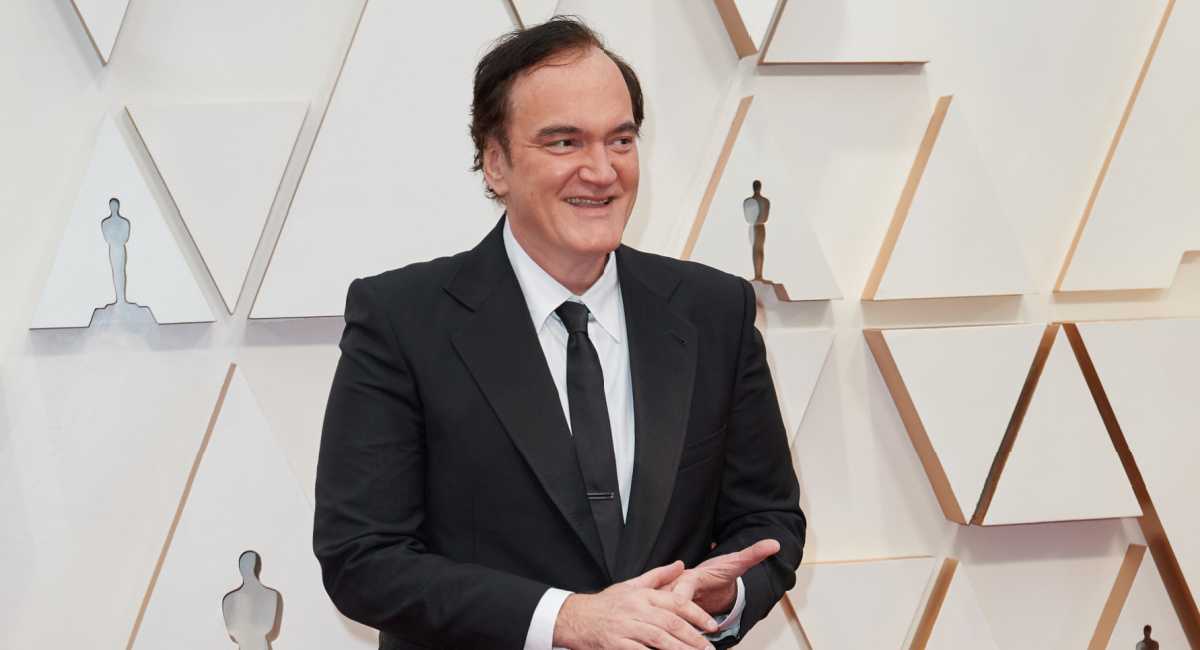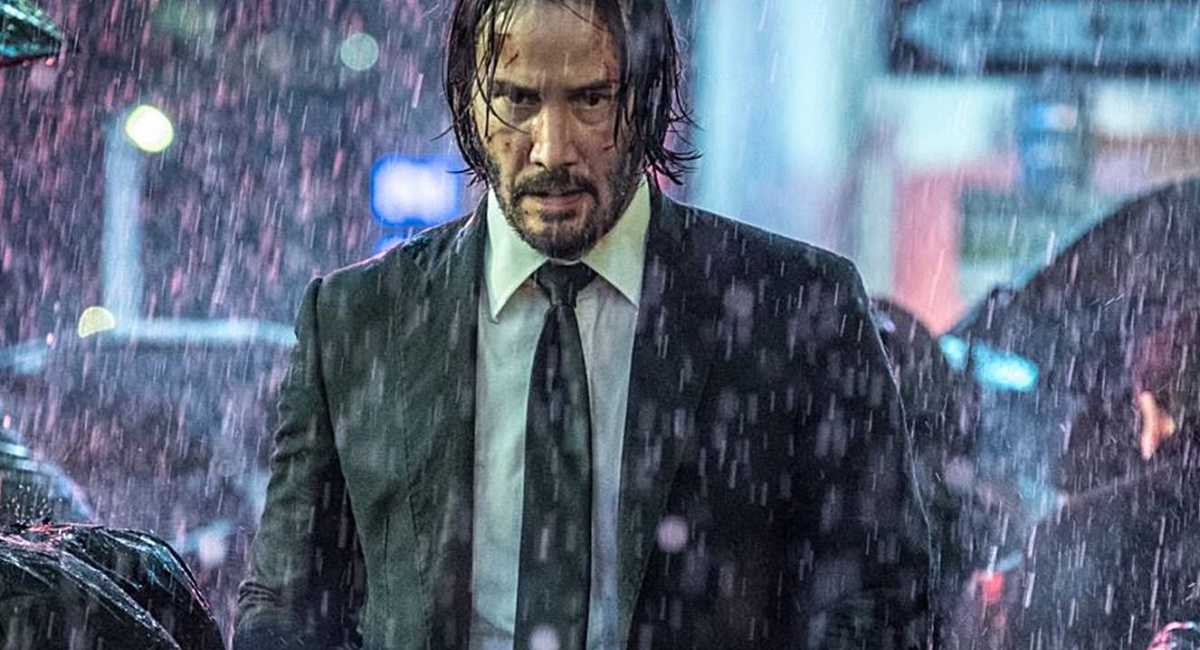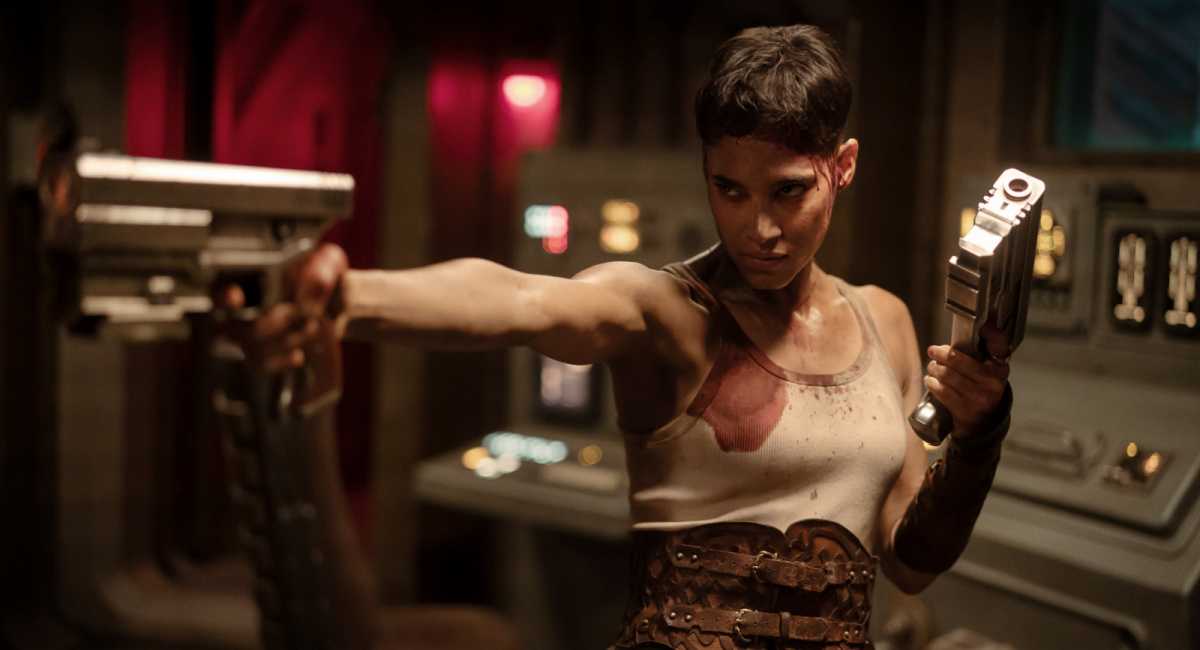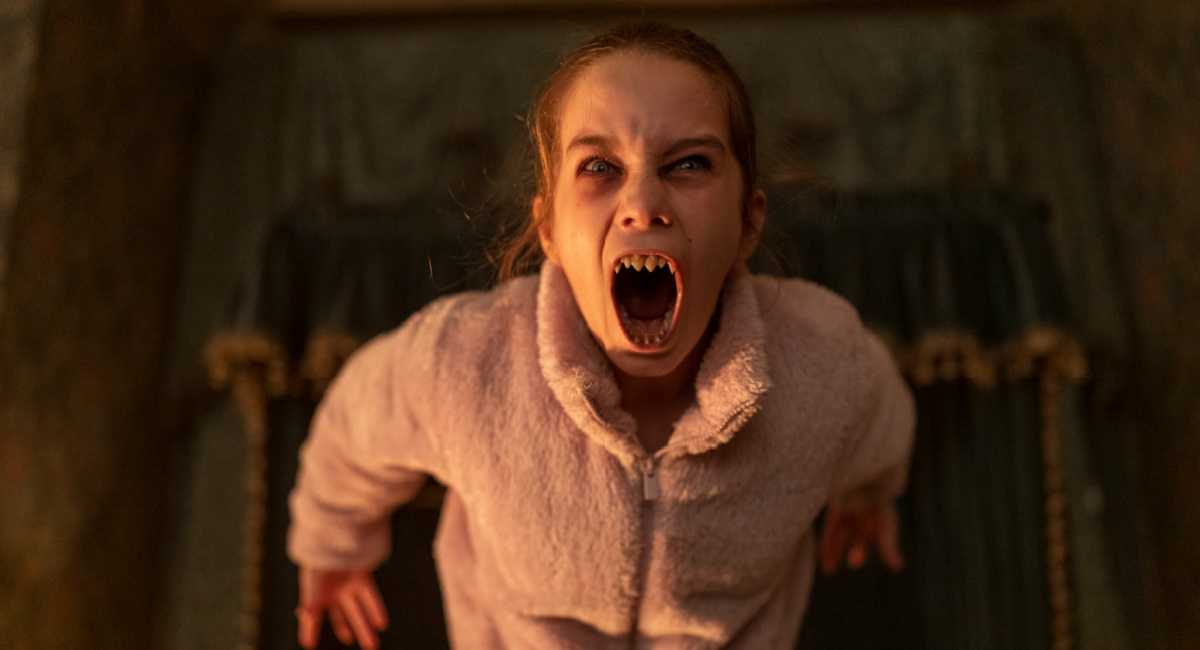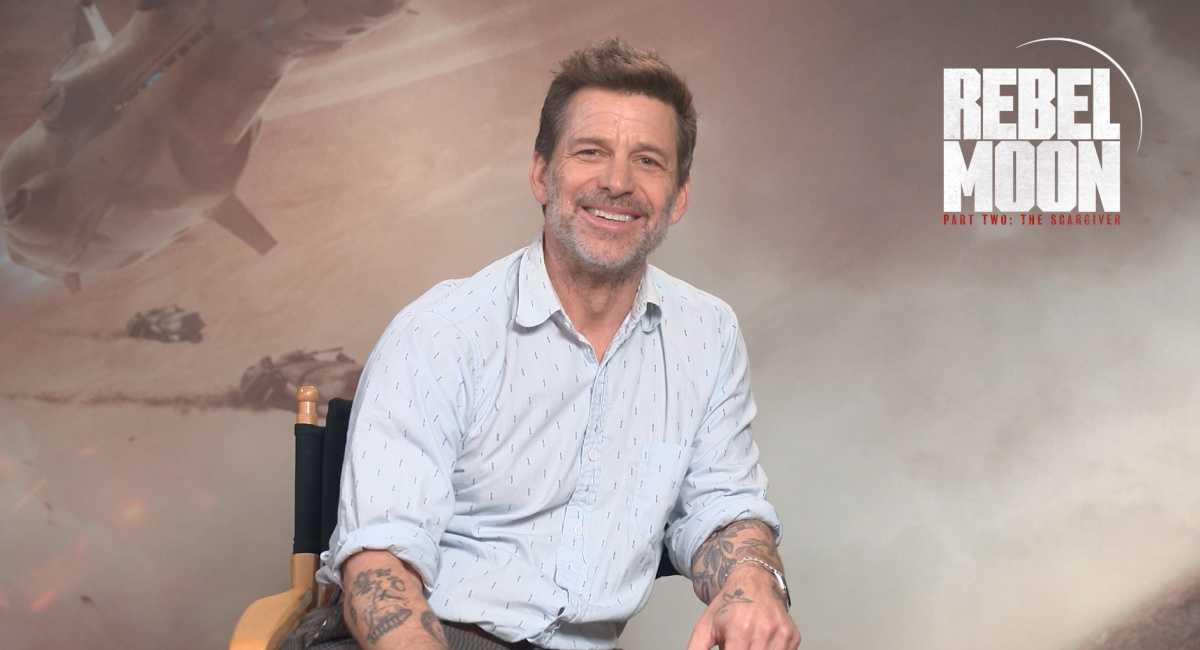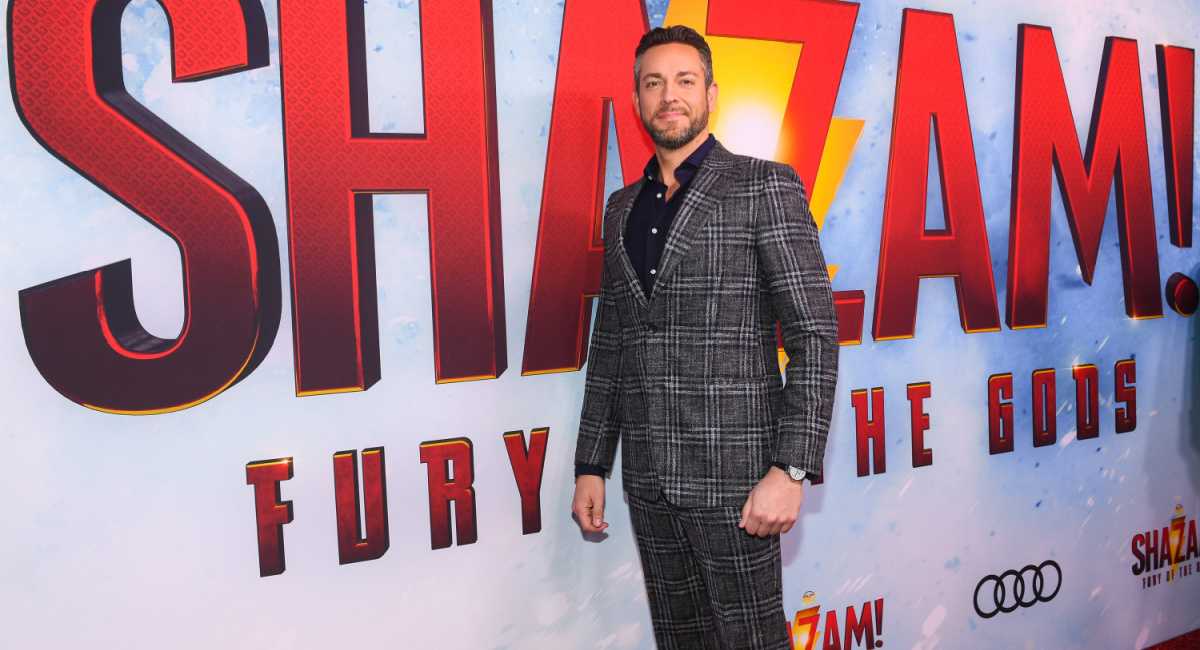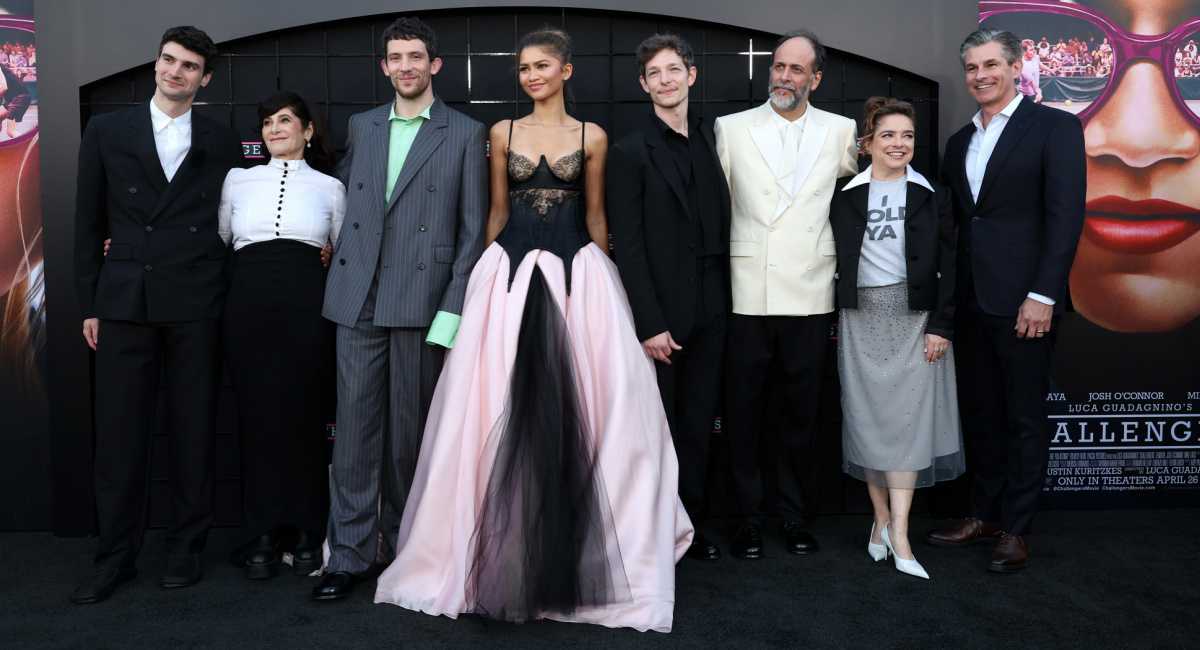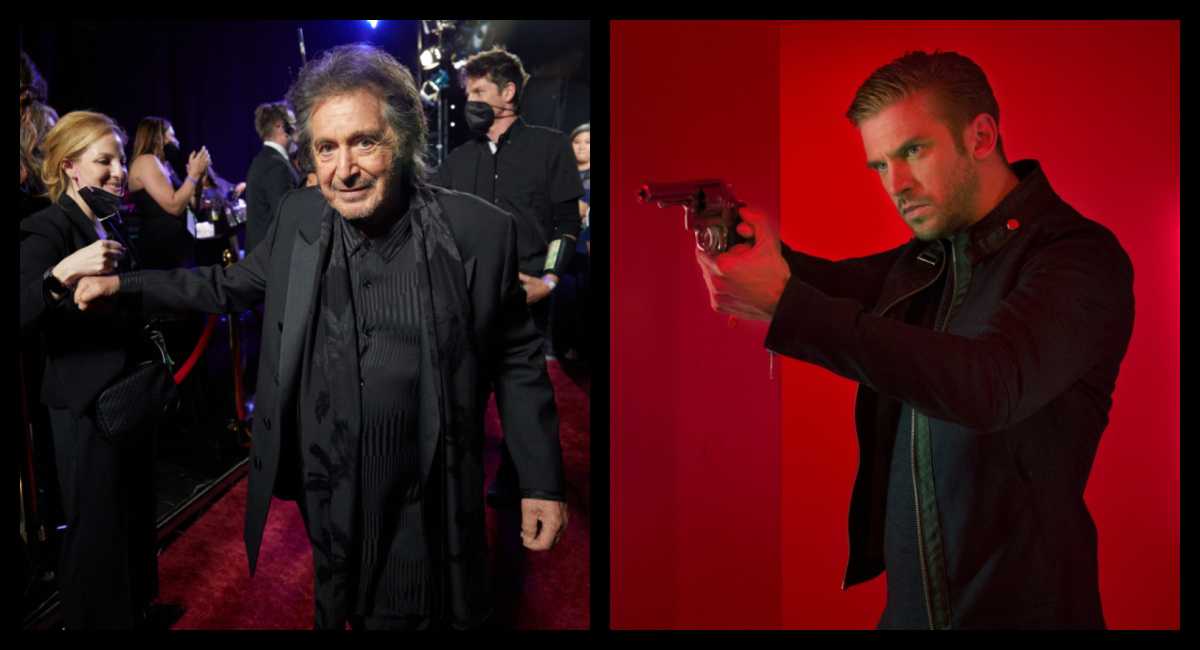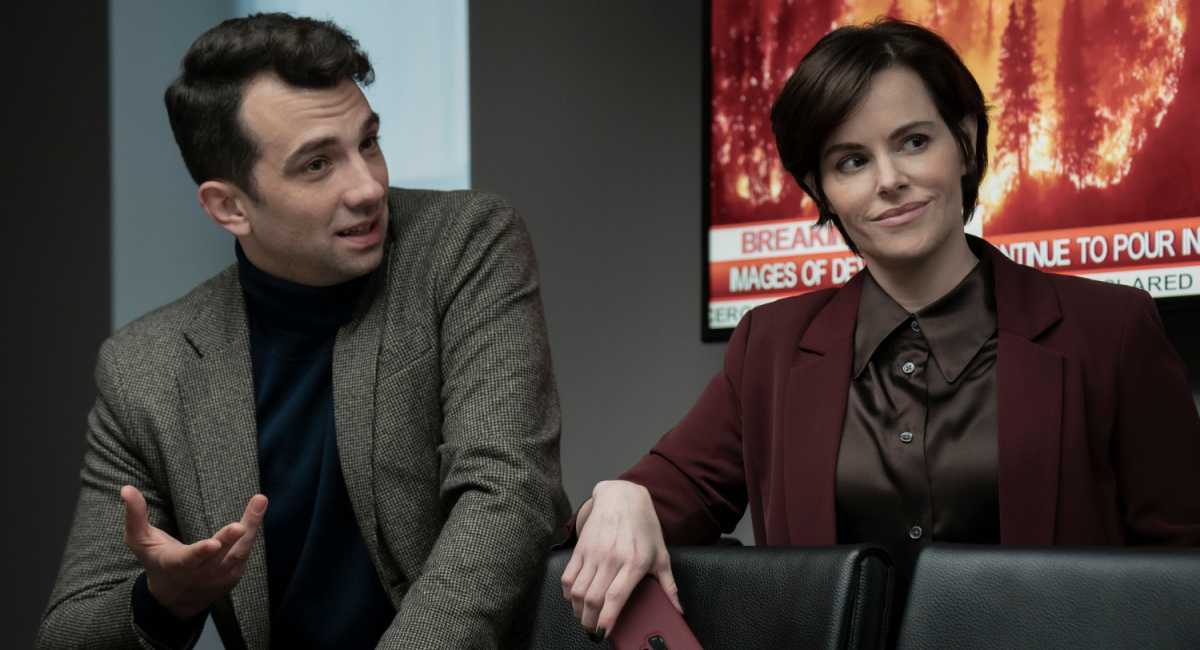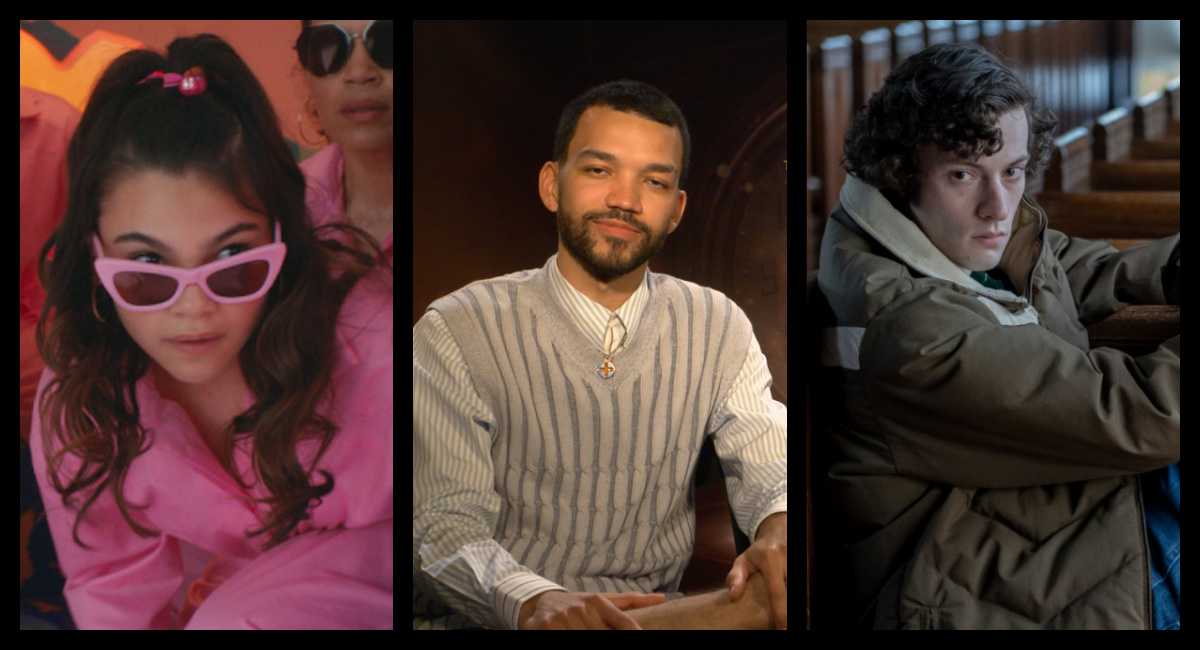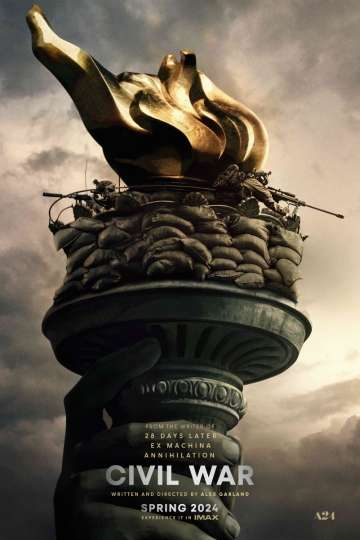Long-Lost 'Star Trek' Footage Presents a New, Not-So-Final Frontier
Call it a 50th anniversary present or the ultimate "Star Trek" holiday gift: either way, fans of the sci-fi franchise -- especially the original 1966 TV series that started it all -- are about to unwrap something special.
"The Roddenberry Vault," which debuts on Blu-ray Dec. 13, is a startling three-disc time capsule that takes viewers viscerally back to "Star Trek's" very beginnings. For years, "Trek" creator Gene Roddenberry had maintained a warehouse space that was kept up long after his death in 1991. When Roddenberry's son, Rod, investigated its contents almost a decade ago, he made an astounding discovery: reels and reels and reels of long-believed lost production footage from the set of the original series, which aired on NBC for three seasons from 1966-1969.
The husband-and-wife team of Mike and Denise Okuda have a long association with the "Star Trek" franchise: Mike designed the now-iconic look of the computer displays seen in "Star Trek: The Next Generation" and subsequent sequel shows, as well as serving as technical consultant on the show's pseudo-future science; Denise has served as a scenic artist and computer and video supervisor on various film and TV incarnations of "Star Trek"; and together the couple have co-authored several books about the series -- including the seminal and recently updated "Star Trek Encyclopedia" -- catalogued historic memorabilia for from the productions for Christie's auction house and created special DVD content and consulted on high-definition upgrades of the series.
Over nine years, the two passionate uber-fans painstaking reviewed the bits and pieces of film discovered within the warehouse, looking for historic and archival gems that would ultimately shed a unique and brand-new light on a 50-year-old series that has been discussed and dissected by legions of fans: lost scenes from the classic episode of "City on the Edge of Forever," evidence of an alternate ending to "Who Mourns for Adonais?"; a long-suspected deleted sequence between James T. Kirk and his orphaned nephew, Peter, from "Operation: Annihilate!"; a long, unedited, single-camera take of Leonard Nimoy in character as Mr. Spock.; and more.The result of their labors -- as spotlighted in "The Roddenberry Vault" among a series of extensive documentaries, special features collected clips, interviews of "Trek's" original cast and creators and a roster of current Hollywood movers and shakers they inspired, and a dozen original episodes presented for context -- will be, for "Star Trek" fans everyone -- downright thrilling, as the Okudas recounted exclusively to Moviefone.
Moviefone: I would imagine that you are thrilled to bring these amazing discoveries to the "Star Trek" fandom at large. When you first got wind of the possibilities locked up in all of these film canisters, given how close you've been to the franchise over the years, tell me what was running through your mind when you first found out you were going to have the chance to go spelunking.
Denise Okuda: It was a dream come true. For years, I just felt like there was more out there. We've seen clips of things that were filmed. We've seen stills like the end of "Operation: Annihilate!" with Peter Kirk on the Bridge. We know this was filmed. So where is that film? For years and years and years and years, I would ask directors, I would ask people, and nobody knew where it was.
I just had this faith that something was out there. So nine years ago, when we were contacted, we were told to meet at this obscure warehouse in Los Angeles. We signed nondisclosures, and they took us in to this room where there were rows and rows and rows of cans of film.
Mike Okuda: It was very much a "Raiders of the Lost Ark" moment. We walked in. They showed us the films and our jaws just dropped.
Denise: Dropped! And, of course, because we know "Star Trek" very well, and I don't know why, but dialogue just sticks with me, we started looking at some of the stuff, and it was like, "Oh, my God. That's an alternate take," or, "Oh my God, that's an omitted line."
It's like Christmas and Easter and Halloween, and any other special holiday that you could think of, wrapped up into one, and we cannot tell you how thrilled and excited we are that other "Star Trek" fans like us are going to be able to see this stuff. We've been waiting for this day for nine years.As you started exploring, how quickly did you start finding the most significant pieces that have been hidden away? Did they slowly reveal themselves, or was it early on you were like, "Oh, we've got a goldmine here?"
Mike: The footage wasn't organized, so when we saw them, it was almost entirely in random order, which means you'd have a whole bunch of things that were, "Eh? Basically the same that's on the air."
Then, suddenly, there'd be a line of dialogue, but we were lucky: very early on, we found the footage from "Operation: Annihilate!" There's a famous scene that everyone knew existed because they'd seen clips of Kirk's nephew Peter coming on the Bridge, and it was a different ending to the episode. We found some of that footage. Needless to say, we were thrilled.
Denise: Now, you need to remember, and what we try to tell people, is that these are snippets from the cutting room floor. There aren't many entire scenes that are intact. Most of this is alternate takes, omitted dialogues, different angles. Some of them are relatively short. Some of them are a little longer. But it's magical because this stuff, we've never seen before. It was the cutting room floor. It was meant to be thrown in the trash, and it was rescued.
So if you are big fans of "Star Trek," as we are, and you know the scenes and you know the dialogue and you can tell that there's new dialogue, that's really special. But if you don't know, then we will give you context. And how we did context was through a couple of documentaries.
Our coworker, a very fine filmmaker, The Big Bang Theory." We talked to [original series writer/producer] Dorothy Fontana. We talked to several of the original series actors. So we hope that there's something for everyone on this Blu-ray.
From watching the documentaries, it sounds like, perhaps, that legendary, lost alternate ending to the episode "Who Mourns for Adonais?" was the Holy Grail that you were looking for, and you had some success. Tell me about that particular one, and then some others that were just truly tremendous finds among all of these little snippets.
Mike: One of the most satisfying pieces we found wasn't a deleted ending, but was some dialogue that was cut, purely for time, from "The City on the Edge of Forever," when just after Kirk saves Edith Keeler from falling down the stairs, they exchange a romantic moment. But after that moment, there were several lines of dialogue which were very sweet between the two of them, and you can just see that they're in love. It's a great character moment for both Kirk and Edith, and of course it makes Edith's subsequent death that much more poignant.
Denise: I think another thing that is very special is what I call the fly on the wall. It puts you there behind the camera. You can see the shooting company. You can see the actors getting ready for their takes. That's like being there. For anyone that is a fan of "Star Trek," that's a very magical feeling.
Michael and I worked on the other incarnations of "Star Trek." We never, of course, worked on the original, but that's our favorite. And so to be there, vicariously, watching this footage was very, very special, and an unexpected treasure. We knew that there would probably be omitted dialogue and alternate takes, because you shoot a master and then you shoot the close-ups and so forth. So we figured there would be some of that, but we also were very pleased to be able to have that experience of being there.
You present so much material on the disks. Is this just scratching the surface of what you discovered? Is there a lot more, and is there any plan to figure out a way to get that out there for the fans to see?
Mike: We tried to use the best material, and we're not aware of any plans in the future. We certainly did not approach this saying, "OK, let's hold some stuff back for another product." We said, 'Let's go for it. Let's make this as good as we can. This is a lot of good stuff."
Denise: Yeah, we worked really, really, really hard on this project. It's a passion project, as you can imagine. Roger and Mike and I worked just seven days a week for months and months, trying to mine the best stuff, weave it into the documentaries, so that we could share the best, the very best stuff. So I think that's probably, this is it, and we're so lucky to have what we have.
How did working on this project make you think about the original series or Gene Roddenberry or any aspect of the phenomenon that is "Star Trek" in a different, new, or fresh way?
Mike: We grew up with the original "Star Trek" series. We watch the reruns all the time. So we started out as fans of the show. We started with "Next Generation." We were connected with the productions, so we have a different perspective on this show. That is, we love the [sequel] shows, but we think of them as, "This is what I worked on."
You have a different relationship to it. So watching this footage from "The Roddenberry Vault," you get a sense of the team that's involved. You get a sense of what the actors went through. You get a sense of what the writers did. One of my favorite bits in "The Roddenberry Vault" is watching these moments of Leonard Nimoy. You can see him working on in his brain how to play the character of Spock. You get a sense of, as Denise said, what it was to be there.Is this the last undiscovered bit of "Star Trek," do you imagine? Or are there still places to look for amazing discoveries like this? It feels like, here we are, 50 years later, and 50 years from now there's still going to be an appetite for this kind of material.
Mike: If you had asked this before this stuff was revealed to us, we would have said, no, there's nothing else. So who knows?
Denise: Who knows? But I can't imagine. I'm happy. I'm satisfied. I still can't believe how lucky we are, and how lucky everyone is going to be when they see this Blu-ray, that we have the opportunity to see this lost footage and be there on set, vicariously. I'm almost speechless, but you can tell I'm not speechless, because I'm so absolutely head-over-heels excited that this is finally, finally coming out.
I have to say, all of the interviews were a treat, but there seemed to be something special about William Shatner's comments in the documentaries. Did you guys get the sense of that? Was there a little bit more magic in his memories this time around?
Mike: I think you're exactly right. We had originally arranged to do a very short interview with him, and Bill just kept saying, "Oh no, I just want to keep talking." He delved into his feeling as an actor, into the process of bringing to Kirk to life, of living in Kirk's emotions, and he spoke of the drama of the storytelling of "Star Trek's" mythology. Frankly, I've never heard him open up like this before.
Denise: I've not, either, and we had occasion to work with Mr. Shatner on several of the feature films, and also just see him from time to time, and of course listen to many interviews that he's done. Roger Lay conducted the interview, and he's very skilled at asking questions and doing interviews, puts people at ease. But I have never seen an interview with Bill Shatner like this before. He was so gracious and so giving and so open that we share your opinion as well. We were blown away, quite frankly.
Next year, we're looking at the 30th anniversary of "Star Trek: The Next Generation," a series in which you of course were so intimately involved. Anything special on the horizon that we can look forward to, to kind of mark that big anniversary?
Mike: Honestly, we haven't thought that far ahead!
Denise: We just wrapped the "Star Trek Encyclopedia," which took two years to do, and "The Roddenberry Vault," which took around nine years to do, and we just wrapped relatively recently. It was a really tight deadline. So, right now, we're decorating our Christmas tree, and we're doing Christmas cards, and we're playing with our dog. So we don't know. January is around the corner, and I hope something transpires because it's a real special anniversary.What keeps you guys motivated to do the great archival work on the "Star Trek" franchise that you've done?
Mike: Like so many other people, we're "Star Trek" fans. We love the stuff, and we know how much "Star Trek" has meant to us, and we know how much "Star Trek" means to so many people, and it's worth it to do it.
Denise: Mike and I feel very, very strongly in the vision of Gene Roddenberry for hope for the future, that we are one human family, and that we need to be kind to each other. And particularly in the world right now, that is sorely lacking. And, so, we feel that through "Star Trek," we can reach out to other people and say, "Hey, you know what? It's going to be OK, and we need to pull together, and we need to be kind to each other." I think that that is something that's extremely important and part of the reason we enjoy these projects.
Gene Roddenberry was a great futurist, but do you imagine he envisioned that preserving this material was the right thing to do, to keep it all stored away, at a time when archiving television material was not the norm? Do you think he suspected the significance it was going to have?
Mike: We have no idea what Gene thought. But his son, Rod Roddenberry, he, from a fairly early age knew the stuff was there, and he was the one who actively preserved the stuff, even after his mother was gone. So Rod Roddenberry certainly had understood that this stuff was unique, and thank goodness he did what he did.
Denise: We also have to give a big shout out to CBS and to CBS Home Entertainment ... I think they thought we were crazy at times, because we were so passionate. We just fought. We just said, "No, we've got to do this. We've got to squeeze every inch out of this so we could put it into this Blu-ray set of discs and share it with other 'Star Trek' fans." We kept saying "It's really, really important. And it's the 50th anniversary. So that's kind of just a tip of the hat to CBS for their support. We can't thank them enough.



